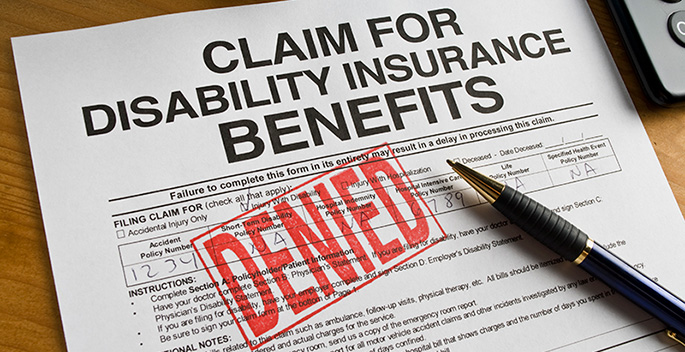Long-term disability (LTD) lawsuits serve as an off-shoot of advocating for people who become injured due to an accident. As well, as the workforce in Ontario ages, the number of workers who have become injured while on the job or otherwise will also increase.
Additionally, the mandatory retirement age law in Ontario has been removed, which will further increase the number of LTD claims. As the number of claims increases, disputes will increase too. Many insurers also continue to develop innovative new arguments in order to defeat the actions of claimants. Here, we will discuss long-term disability litigations and what they entail.
How to Obtain Early Disclosure of the Actual Disability Policy
Unlike motor vehicle claims, there is no long-term disability insurance policy standard. Policies will differ, depending on the client and insurer. The breadth of benefits that are offered by an LTD policy will be related to the premiums that are paid.
Try and obtain disclosure of the policy as soon as you can. By doing so, you will ensure that you are claiming everything that you are entitled to under said policy. Early disclosure of the insurer’s file and policy will also provide you with ample time to evaluate the case before you opt to litigate.
Things to Consider While Doing Medical Examinations
If your case is denied, any extra clinical data that will need to be collected/recorded will usually need to be paid for by you. However, there is an exception to this practice. The insurer may become aware that you, the claimant, has retained counsel. They may be notified that you will soon litigate.
Many LTD lawyers will write a letter requesting the client’s file before litigating. By obtaining the file, they will be able to go over it and determine if there is any evidence of improper conduct. In some cases, the company may ask that the claimant go through another series of tests. If the tests discover or support your disability, then your benefits will be reinstated. The insurer will also avoid litigation in the process.
LTD claims and appeals can be complicated, but preparing in advance can avoid many pitfalls.
How to File a Jury Notice
Most insurance companies do not like the idea of leaving their fate in the hands of a jury. It is also forbidden in Ontario to inform the jury that the defendant has insurance benefits. Even bringing up such matters will often lead to a mistrial.
If you wish to file a jury notice, then you must first choose your words carefully. Drafting your claim should be done in a careful and meticulous manner. It is very important that you do not ask for a declaration. Please avoid any type or form of injustice relief as well, as its value is minimal to non-existent beyond the trial date.
You should also add a paragraph that states that section 318 of the Insurance Act provides contract privity between the long-term disability carrier and the plaintiff. The way that claims are drafted has changed significantly in the last decade. Many lawyers routinely file jury notices without any issues or objections in long-term disability cases.
Be Aware of Advancing Claims for Unionized Employees
Whether or not you are unionized may have an impact on your LTD file. If no union is involved, then the file will proceed via the lawsuit route. If, however, you are unionized, then you may need to proceed via the arbitration protocols stipulated by the Collective Bargaining Agreement.
It should be noted that labour arbitrators are not accustomed to dealing with disability cases for the most part. The arbitration process is also not designed to handle such cases in an efficient manner. In fact, many unions now routinely hire personal injury lawyers in order to deal with LTD cases.
Determining if the LTD Claims are Subject to Taxable or Non-Taxable Benefits
LTD benefits are either non-taxable or taxable. If your company is required to pay for the LTD insurance premiums, then the benefits will be taxable. However, if you are required to pay for the LTD premiums, then the benefits will be non-taxable.
There is a very clear advantage of making the benefit non-taxable. Strangely, many workers choose to not pay for their own premiums. It should also be noted that most LTD insurance plans are of the non-taxable variety.
Here to Stay
As the population grows and ages, the number of LTD suits will surely increase. Claimants have also been disadvantaged historically, as it is LTD insurers that usually interpret and write the policies involved.
However, most courts are aware of the power imbalance between the two parties, which may actually benefit persons such as yourself. We hope that the tips that we have provided will help prepare you for LTD litigations in the future. For more information, contact your local LTD lawyer.
Author Bio
Jessica Coates is a blogger in Toronto. She graduated with honors from the University of British Columbia with a dual degree in Business Administration and Creative Writing. Jessica Coates is a community manager for small businesses across Canada. She loves to research about various topics related to law, education, travel and business solutions.
